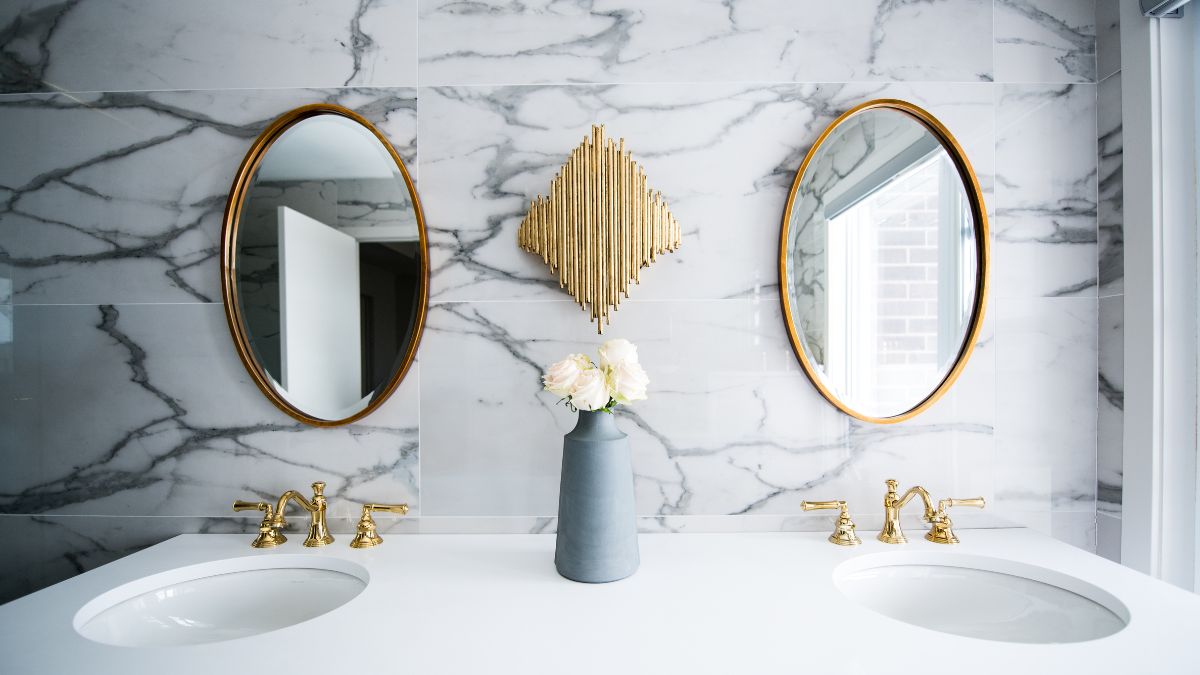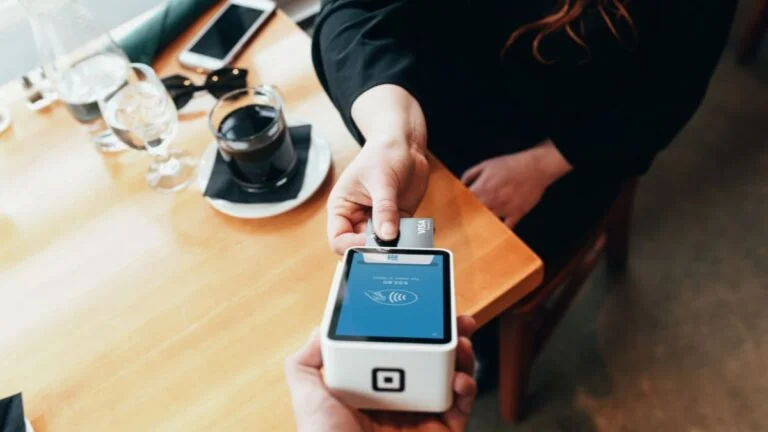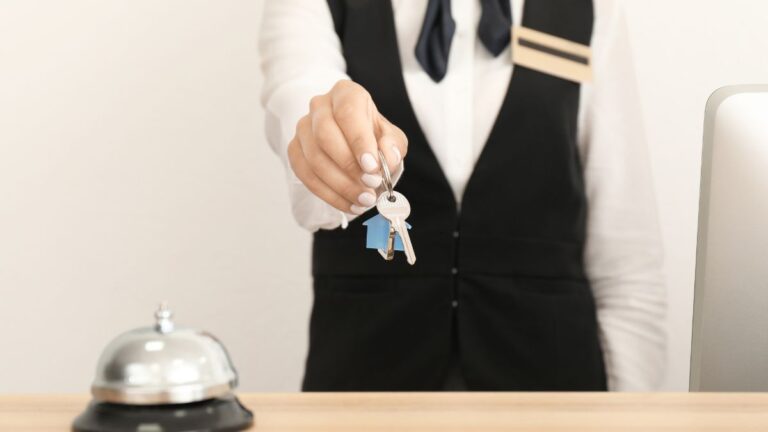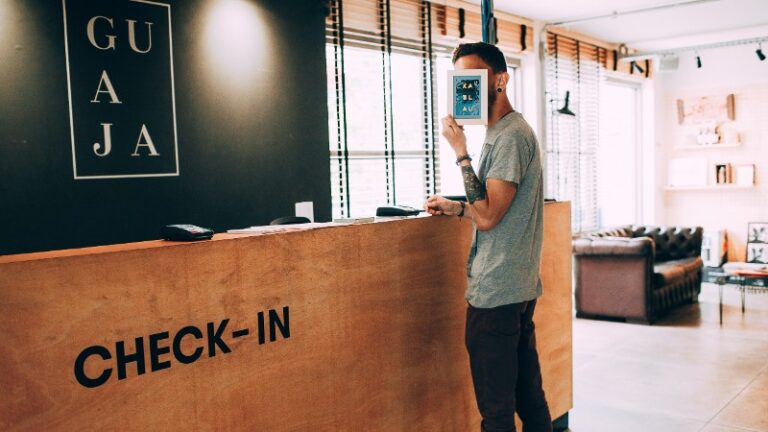What Does Private Bathroom Mean In A Hotel? Explained

As participants in Amazon Associates and other programs, we earn from qualifying purchases. This comes at no additional cost to you. For more details, see our Affiliate Disclosure.
When booking a hotel, there are many factors that can influence your decision – location, price, amenities, and, for many travelers, the type of bathroom. “Private bathroom” is a term you’ve likely come across in your search. But what does it really mean? This term, though simple on the surface, can sometimes cause confusion, especially for first-time travelers or those accustomed to different lodging types.
This article aims to demystify the concept of a “private bathroom” in a hotel setting, helping you know exactly what to expect and make informed choices for your next travel adventure.
The Basic Definition of a Private Bathroom
A private bathroom in a hotel context refers to a bathroom facility that is exclusively available to the occupants of a particular hotel room. It is not shared with any other guests outside of your room booking.
In practical terms, this means that the bathroom is accessed from within your hotel room without needing to go into a public hallway or space. You have full control over this bathroom during your stay, including the shower, bathtub, sink, and toilet.
This contrasts with a shared bathroom, which might be located down the hall or in a central location, and is shared among several guests or rooms. Private bathrooms are often considered more convenient and desirable because they offer a higher level of privacy and comfort for hotel guests.
Differences Between a Private Bathroom and a Shared Bathroom
A private bathroom and a shared bathroom are fundamentally different in terms of access, privacy, convenience, and often, the level of luxury they offer. Let’s break down these differences:
Access and Privacy
The primary difference is who has access to the bathroom. As mentioned earlier, a private bathroom is exclusively for the use of occupants of a specific room. It’s directly connected to the room, offering maximum privacy.
On the other hand, a shared bathroom is accessible to multiple guests across different rooms. This setup is more common in hostels, bed and breakfast establishments, or budget hotels.
Convenience
With a private bathroom, you have the freedom to use the facilities anytime you need without waiting for others to finish. However, in a shared bathroom situation, you might sometimes need to wait your turn, especially during peak times in the morning or evening.
Cleanliness
Private bathrooms tend to be cleaner as they are used by fewer people, and you have more control over the space. Shared bathrooms are cleaned regularly by hotel staff, but because they are used by more people, there can be periods where they are not as clean or tidy.
Amenities and Luxury
Private bathrooms often come with added amenities like high-quality toiletries, hairdryers, and sometimes even luxury features like a jacuzzi. Shared bathrooms typically have basic facilities and might not offer the same level of amenities.
Cost
Rooms with private bathrooms are generally more expensive than those with shared facilities due to the added convenience, privacy, and often, luxury features.
Importance of a Private Bathroom in a Hotel Stay
The importance of a private bathroom during a hotel stay can vary significantly depending on individual preferences, but for many people, it plays a crucial role in shaping the overall experience. Here’s why:
Privacy and Comfort: First and foremost, a private bathroom provides an element of privacy and comfort that a shared bathroom can’t match. It allows you to carry out your personal hygiene routines at your own pace, without worrying about interrupting or being interrupted by other guests.
Convenience: Having a private bathroom is highly convenient. There’s no need to queue or wait for your turn, no matter what time of the day or night. This convenience is particularly important if you have a tight schedule or are sharing the room with family members who have different schedules.
Hygiene and Cleanliness: From a hygiene perspective, a private bathroom tends to be cleaner and safer since it’s used by fewer people. It lessens the risk of exposure to germs or viruses, which can be a significant concern, especially in the post-pandemic world.
Personalization: Private bathrooms often come with amenities like toiletries, towels, and hairdryers. You can leave your personal items in there without worry, making it feel more like a home away from home. This isn’t always possible in a shared bathroom setting.
Sense of Luxury: Finally, a private bathroom can add a sense of luxury to your hotel stay. Many hotel bathrooms are designed with comfort and aesthetics in mind, with features like high-end toiletries, plush towels, and sometimes even spa-like elements such as jacuzzis or high-tech showers.
Features Typically Found in a Private Bathroom
Private bathrooms in hotels usually come equipped with a range of features to ensure guest comfort and convenience. These features can vary depending on the hotel’s level of service and luxury, but typically, a private bathroom will include:
- Toilet: This is a standard feature in all private bathrooms. Some high-end or luxury hotels might offer high-tech toilets with features such as bidets, seat warmers, and automatic flush sensors.
- Shower/Bathtub: Most private bathrooms will have a shower facility, and some might also include a bathtub. In luxury suites, you might find a jacuzzi or a whirlpool tub.
- Sink and Vanity Area: A sink with a mirror is a standard feature. The vanity area may also include space for personal items, a hairdryer, and often an extra mirror for convenience.
- Toiletries: These usually include soap, shampoo, conditioner, and body lotion. Higher-end hotels might offer more luxurious or brand-name toiletries. Some hotels also provide items like shower caps, vanity kits, and bath salts.
- Towels and Linens: These typically include bath towels, hand towels, and washcloths. Some hotels also provide bathrobes and slippers.
- Storage: This can be in the form of shelves, cupboards, or hooks for hanging towels and clothes.
- Ventilation: This might be a window (usually frosted for privacy), a ventilation fan, or both.
- Lighting: Good bathrooms have well-planned lighting, including main lights and mirror lights for tasks like shaving or applying makeup.
- Additional Features: Depending on the hotel, there might be other amenities like heated towel rails, scales, magnifying mirrors, or even televisions embedded in the mirror.
- Accessibility Features: For guests with disabilities, bathrooms may have additional features like handrails, a raised toilet, a roll-in shower, or emergency call buttons.
Keep in mind that the features and amenities can greatly vary from hotel to hotel, and it’s always a good idea to check what’s included before making a booking.
Decoding Hotel Jargon: ‘En Suite’, ‘Private’, and ‘Shared’ Bathrooms
When you’re booking a hotel room, you’ll likely come across a range of terms to describe the bathroom facilities. To make an informed decision, it’s important to understand these terms. Here’s what they mean:
Private Bathroom
As we’ve discussed earlier, a private bathroom refers to a bathroom that is exclusively for the use of the occupants of a specific room. This bathroom is not shared with any other guests outside of your room booking and offers the highest level of privacy and convenience.
En Suite Bathroom
An en suite bathroom (also known as an attached bathroom) is a term often used interchangeably with a private bathroom. It means the bathroom is directly connected to the bedroom, allowing direct access without needing to leave the room.
All en suite bathrooms are private, but not all private bathrooms are en suite. For instance, a bathroom could be private (not shared) but located across the hall from the bedroom.
Shared Bathroom
A shared bathroom is one that is used by multiple guests or rooms. It’s often found in budget accommodations, hostels, or traditional bed and breakfasts. While these bathrooms are regularly cleaned and maintained by the hotel staff, they don’t offer the same level of privacy and convenience as a private or en suite bathroom.
Understanding these terms can help you choose a hotel room that suits your comfort level and expectations. It’s always a good idea to confirm the type of bathroom when booking, especially if you’re using a third-party booking site where descriptions can sometimes be unclear.
How to Determine If a Hotel Room Has a Private Bathroom
Determining whether a hotel room has a private bathroom should generally be straightforward, but sometimes, the information may not be clearly presented, especially on some online booking platforms. Here are some tips to ensure that you book a room with a private bathroom:
- Read the Room Description Carefully: Most hotel websites or booking platforms provide a detailed description of the room amenities. Look for phrases like “private bathroom”, “en suite bathroom”, or “attached bathroom”.
- Check the Room’s Amenities List: Some platforms provide a list of amenities. Ensure “private bathroom” is included in the list.
- Look at Photos: Most hotels provide photographs of their rooms. If there’s a picture of the bathroom, it’s likely to be a private one. However, this is not a foolproof method, so it’s best to confirm through other means as well.
- Contact the Hotel Directly: If you’re unsure, the best approach is to directly contact the hotel. You can email, call, or use a live chat feature if available. Ask them explicitly if the room you’re interested in has a private bathroom.
- Check Customer Reviews: Sometimes, previous guests’ reviews can give you a clear idea of the room facilities, including the bathroom.
- Beware of Terms that Indicate Shared Facilities: If the room description mentions “shared bathroom”, “communal bathroom”, or “hallway bathroom”, it’s a clear indication that the bathroom is not private.
It’s always better to clarify any doubts before booking to ensure a comfortable stay aligned with your expectations.
Misconceptions About Private Bathrooms in Hotels
While the term “private bathroom” is generally well-understood, there are a few misconceptions that travelers may have. Let’s clarify some of these:
- Private Equals Luxury: Not all private bathrooms are luxurious. While it’s true that many higher-end hotels offer luxurious private bathrooms, the term ‘private’ simply means that the bathroom is not shared with other guests. The facilities, fixtures, and finishes can vary greatly from one hotel to another.
- All Private Bathrooms are En Suite: While most private bathrooms in hotels are en suite, meaning they’re directly connected to your bedroom, this is not always the case. Occasionally, especially in older or boutique establishments, a private bathroom might be located across the hall from your room. It’s still for your exclusive use, but it’s not en suite.
- Private Bathrooms Always Have a Bathtub: Some travelers assume that a private bathroom will always include a bathtub. However, this isn’t always the case. Many hotel bathrooms, especially in budget or urban accommodations, may only feature a shower.
- Private Bathrooms Are Always Large: The size of a private bathroom can significantly vary depending on the hotel type, location, and room category. In city-center hotels where space is at a premium, private bathrooms can be quite compact.
- Private Bathrooms Mean More Toiletries: The provision of toiletries depends more on the hotel’s policies and star rating than on whether the bathroom is private or shared. Some hotels might offer a wide range of toiletries while others might provide only the basics.
As a traveler, it’s important to check hotel descriptions, photos, and reviews carefully, or contact the hotel directly to ensure you have accurate information about the bathroom facilities.
The Impact of a Private Bathroom on Room Pricing
A private bathroom can significantly impact the cost of a hotel room due to the added convenience, privacy, and luxury it provides. Here’s how it can influence room pricing:
- Increased Base Price: Generally, rooms with private bathrooms have a higher base price than those with shared facilities. This is because private bathrooms are more desirable to most travelers and are therefore considered a premium feature.
- Higher Level of Luxury: Private bathrooms in luxury hotels or suites can drive up the price even further. These bathrooms often have high-end fixtures, designer toiletries, or spa-like features, all of which contribute to a higher room rate.
- Renovation Costs: If a hotel has recently upgraded its bathrooms or added private facilities to its rooms, these renovation costs may be reflected in the room rates.
- Maintenance and Cleaning: Private bathrooms require regular cleaning and maintenance, which can increase operational costs for the hotel. These costs are often passed onto the guests in the form of higher room rates.
- Value Perception: Even if the actual costs of providing a private bathroom are minimal, the perceived value is high. Travelers often equate private bathrooms with comfort and quality, making them more willing to pay higher rates for rooms with these facilities.
While rooms with private bathrooms tend to be more expensive, many travelers find the added cost worth the convenience, privacy, and comfort they provide. However, budget-conscious travelers or those who don’t mind sharing facilities can save money by choosing rooms with shared bathrooms.
Tips for Booking a Hotel Room with a Private Bathroom
Booking a hotel room with a private bathroom should be a fairly straightforward process, but there are a few tips to ensure you get exactly what you’re looking for:
- Do Your Research: Take the time to research hotels and read room descriptions carefully. Look for terms like ‘private bathroom’, ‘en suite’, or ‘attached bathroom’.
- Check Reviews: User reviews can provide valuable insight into the room and bathroom conditions. If private bathrooms are a priority, look for reviews mentioning them specifically.
- Use Filters When Searching: Most hotel booking websites have filters you can use to narrow down your search. Choose ‘private bathroom’ or ‘en suite bathroom’ to see only rooms that have this feature.
- Check the Pictures: Most hotels provide photos of their rooms. Look for pictures of the bathroom. If a room has a private bathroom, there’s usually at least one picture of it in the gallery.
- Contact the Hotel Directly: If you’re unsure about the type of bathroom, don’t hesitate to contact the hotel directly. It’s better to confirm before booking than to be disappointed on arrival.
- Book in Advance: Private bathrooms are a sought-after feature, especially in budget or boutique hotels that may offer a mix of private and shared facilities. To secure a room with a private bathroom, it’s wise to book as far in advance as possible.
- Consider Your Budget: Rooms with private bathrooms tend to be more expensive than those with shared facilities. Ensure the cost aligns with your budget before making a booking.
What matters most is your comfort and satisfaction during your stay. If a private bathroom is important to you, it’s worth making the extra effort to ensure your room has one.






